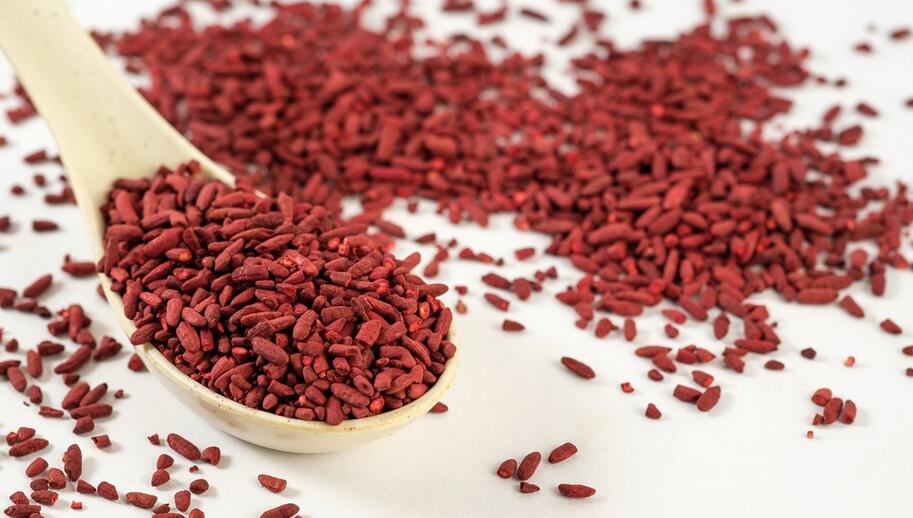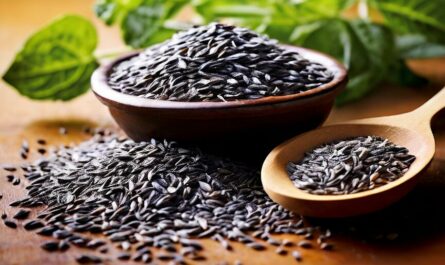If you suffer from the burning discomfort of heartburn, you’re probably familiar with antacids or other medications. But what if a natural, refreshing remedy could soothe your symptoms just as effectively? Enter peppermint – a humble herb that packs a powerful punch when it comes to managing heartburn. From its cooling menthol properties to its ability to relax stomach muscles, peppermint offers some amazing benefits for heartburn relief. This article will discuss 14 amazing health benefits of peppermint for heartburn.
What is Heartburn?
Heartburn, also known as acid indigestion, is a common condition characterized by a burning sensation in the chest or upper abdomen. It occurs when stomach acid flows back up into the esophagus, causing irritation and inflammation.
The main symptom of heartburn is a burning pain that may worsen after eating, lying down, or bending over. Other symptoms can include a sour or bitter taste in the mouth, difficulty swallowing, and a feeling of a lump in the
Heartburn is often caused by the weakening of the lower esophageal sphincter (LES). Certain factors can trigger or worsen heartburn, including certain foods and drinks, obesity, pregnancy, smoking, certain medications, or gastroesophageal reflux disease (GERD).

14 Health Benefits of Peppermint for Heartburn Relief
1. Relaxes the Lower Esophageal Sphincter (LES)
One of the primary causes of heartburn is a weakened or relaxed lower esophageal sphincter (LES). This is the ring of muscle that acts as a valve between the stomach and the esophagus. When the LES isn’t functioning properly, stomach acid can escape back up into the esophagus, leading to a burning sensation.
Peppermint oil can help relax the LES. By allowing food to pass through the stomach more quickly, peppermint can help prevent the backflow of acid that triggers heartburn.
This effect was demonstrated in a small study where peppermint oil was found to be more effective than the prescription drug Prilosec at relieving symptoms of gastroesophageal reflux disease (GERD).
2. Improves Digestion and Gut Motility
In addition, peppermint’s antispasmodic properties can help improve overall digestion by relaxing the smooth muscles of the digestive tract. This can alleviate symptoms like bloating, cramping, and constipation that often accompany acid reflux.
By keeping things moving smoothly through the gut, peppermint may help prevent the buildup of gas and pressure.
3. Provides Anti-Inflammatory Benefits
Chronic acid reflux can lead to inflammation and irritation of the esophageal lining over time. Peppermint contains natural compounds like menthol and menthone that have anti-inflammatory properties.
By reducing inflammation in the esophagus and stomach, peppermint may help soothe the burning sensation of heartburn. This can protect the delicate tissues from further damage.
The anti-inflammatory effect is especially beneficial for those with gastritis or esophagitis caused by chronic acid exposure.
4. Acts as a Natural Analgesic
In addition to its anti-inflammatory effects, the menthol in peppermint also acts as a natural analgesic or pain reliever. The cooling sensation it provides can help numb areas of discomfort and ease the painful burning associated with acid reflux.
This analgesic property makes peppermint a great complementary remedy to use alongside other heartburn treatments. The cooling, numbing effect can provide an extra layer of soothing comfort during acute flare-ups.
5. Supports Healthy Bile Flow
Bile is a digestive fluid produced by the liver that helps break down fats in the small intestine. Peppermint has been shown to stimulate the production and flow of bile. This can aid in the digestion of fatty foods.
Since high-fat meals are a common trigger for heartburn, peppermint’s ability to improve bile flow may help prevent acid reflux episodes after indulging in richer fare. Better fat digestion means less likelihood of a bloated, and overly full feeling.
6. Exhibits Antimicrobial Properties
Certain strains of bacteria like H. pylori have been linked to increased acid production and inflammation in the stomach. H. pylori infections are a major risk factor for conditions like peptic ulcers and chronic gastritis.
Peppermint oil contains compounds like menthol, menthone, and carvone that have demonstrated antimicrobial and antibacterial effects against various pathogens. These properties may help keep harmful bacteria in check and reduce inflammation in the gut.
7. Provides a Cooling, Soothing Effect
There’s a reason peppermint is so closely associated with that refreshing, cooling sensation – and it’s not just the menthol! The herb contains several volatile oils like menthone, iso menthone, and limonene that can activate cold-sensitive receptors in the mouth and throat.
This cooling effect can provide soothing relief for the burning discomfort of acid reflux and help calm any irritation or inflammation in the esophagus. The cooling vapors from peppermint tea or aromatherapy can be especially calming during an acute reflux episode.
8. May Help Relieve Nausea and Vomiting
Nausea and vomiting often go hand-in-hand with severe or chronic acid reflux. Peppermint has been studied for its ability to reduce these unpleasant symptoms. This is particularly true in cases of nausea induced by chemotherapy, surgery, or pregnancy.
9. Supports Healthy Respiratory Function
While heartburn is the main focus here, peppermint’s benefits extend to the respiratory system as well. The menthol in peppermint can act as a natural decongestant. It can help to open nasal passages and clear mucus from the lungs.
This can provide relief for those whose acid reflux triggers asthma symptoms or other respiratory issues. The cooling vapors of peppermint may also soothe a sore, irritated throat.
10. Boosts Energy and Concentration
If you’ve ever felt that “food coma” after a big meal or experienced fatigue from chronic acid reflux, peppermint may be able to help give you an energizing boost. The invigorating aroma of peppermint has been linked to increased alertness, focus, and concentration.
By supporting better digestion, peppermint can help combat the sluggishness and brain fog that often accompanies heartburn.
11. Offers a Refreshing Flavor
Let’s be honest – constantly popping antacid tablets or sipping on chalky liquids isn’t exactly a pleasant experience. Peppermint, on the other hand, offers a bright, refreshing flavor that can make finding heartburn relief a little more enjoyable.
Whether you’re sipping on peppermint tea, sucking on a minty lozenge, or chewing sugar-free peppermint gum, you’ll get to enjoy that classic cool taste. The refreshing flavor can make peppermint remedies feel more like a treat than medicine.
12. Increases Saliva Production
Chewing sugar-free peppermint gum or sucking on peppermint lozenges can help increase saliva production. Saliva is naturally alkaline and can help neutralize stomach acid, providing relief from heartburn symptoms.
The act of chewing gum can also help force air bubbles out of the esophagus and encourage the LES to remain closed. This makes peppermint gum a convenient, portable option for managing heartburn on the go.
13. Provides a Natural Alternative
For those looking to avoid the potential side effects of over-the-counter, peppermint offers a natural, plant-based solution with a long history of safe use.
While it may not be appropriate for everyone, especially those with GERD, peppermint can be an effective complementary therapy.
14. Easy to Incorporate
One of the great benefits of using peppermint for heartburn relief is just how easy it is to incorporate into your routine. You can:
- Sip on peppermint tea after meals or when symptoms flare up
- Take enteric-coated peppermint oil capsules as directed
- Use peppermint essential oil aromatically or diluted for topical application
- Chew sugar-free peppermint gum
- Add fresh peppermint leaves to smoothies, salads, or other dishes
- Grow your peppermint plant for easy access to the fresh leaves
With so many convenient options, finding a way to get your daily dose of peppermint is a breeze. You can even combine multiple methods, like sipping tea while using an essential oil diffuser.

How to Use Peppermint for Heartburn Relief
If you want to try using peppermint to manage your heartburn symptoms, there are a few different options for incorporating it into your routine:
1. Peppermint Tea
Sipping on peppermint tea can provide soothing relief for heartburn and indigestion. To make peppermint tea, simply steep 1 tsp of dried peppermint leaves in 1 cup of hot water for 5-10 minutes. You can drink 1-2 cups per day as needed for symptom relief.
The warm liquid can help relax stomach muscles, while the menthol in the peppermint has an antispasmodic effect on the digestive tract. For an extra minty boost, you can add a drop or two of peppermint essential oil to your tea.
Just be sure not to drink peppermint tea too close to bedtime, as it can potentially worsen nighttime reflux symptoms for some people. Stick to drinking it earlier in the day.
2. Peppermint Oil Capsules
For a more concentrated dose of peppermint’s therapeutic benefits, you can take enteric-coated peppermint oil capsules. The enteric coating is essential, as it prevents the capsule from dissolving in the stomach, which could potentially exacerbate heartburn.
Instead, the capsule passes intact into the intestines before releasing the peppermint oil. This allows you to get the digestive benefits without worsening acid reflux.
Typical dosages for IBS symptoms range from 0.2-0.4 ml of peppermint oil taken 2-3 times per day. Start with a lower dose and increase gradually as needed, being careful not to exceed recommended amounts.
Look for high-quality peppermint oil capsules that contain at least 0.2 ml of oil per capsule and are certified organic if possible. Reputable brands include Heather’s Tummy Tamers, Peppermint Ultra, and Integrative Therapeutics.
3. Peppermint Essential Oil
Using peppermint essential oil aromatically or topically can also provide relief from heartburn and other digestive discomforts. Here are a few ways to use it:
- Add 3-5 drops to a diffuser or bowl of steaming water and inhale the minty vapors
- Mix 2-3 drops with a carrier oil like coconut or almond oil and massage onto the abdomen in a clockwise motion
- Place a drop of peppermint oil under your tongue for quick relief of acid reflux symptoms
Never ingest peppermint essential oil internally, as it is highly concentrated and can be toxic in large amounts. When using topically, always dilute with a carrier oil to avoid skin irritation.
Look for 100% pure, therapeutic-grade peppermint essential oil from reputable brands like doTERRA, Young Living, or Plant Therapy.
4. Peppermint Gum or Lozenges
Chewing sugar-free peppermint gum or sucking on peppermint lozenges can also help provide relief from heartburn by increasing saliva production. Saliva is naturally alkaline and can help neutralize stomach acid.
The act of chewing gum can also help force air bubbles out of the esophagus and encourage the LES to remain closed. Just be sure not to chew gum excessively, as swallowing too much air can worsen reflux symptoms.
Precautions for Using Peppermint for Heartburn
While peppermint can be an effective, natural way to find heartburn relief for many people, it’s not right for everyone. There are some important precautions to keep in mind:
- Avoid peppermint if you have gastroesophageal reflux disease (GERD) or a hiatal hernia. This can potentially worsen symptoms by relaxing the LES too much. Those with severe, chronic acid reflux should avoid peppermint.
- Don’t take peppermint with certain medications like antidepressants, antibiotics, cyclosporine, or statins. It may affect how they are metabolized.
- Pregnant women should avoid taking large supplemental doses of peppermint, as not enough is known about its safety during pregnancy.
- People with gallbladder issues, kidney disease, or severe heartburn should avoid high doses of peppermint oil. It may worsen these conditions.
- Stop using peppermint if you experience any side effects like heartburn, nausea, vomiting, flushing, or mouth sores.
As with any herbal remedy or supplement, it’s always best to discuss using peppermint for heartburn with your doctor first. This is important especially if you have any underlying health conditions or are taking medications.






